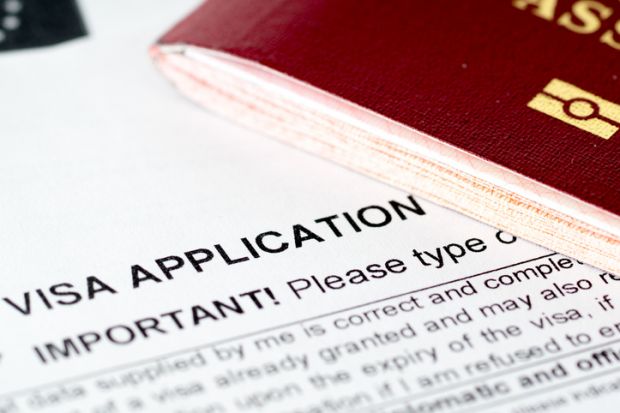Hiking the cost of studying and working in the UK will make international recruitment even harder for the country’s universities, scholars have warned.
Pay rises of up to 7 per cent for millions of public sector workers will be funded by a 20 per cent increase in the costs of study visas – currently £490 for those inside the UK, or £363 for applicants outside the country.
John Glen, the chief secretary to the Treasury, also said that costs for students inside and outside the UK would be “equalised”, suggesting that all applicants will pay £588 in future.
The price of work visas, which cost between £625 and £1,423, will climb by 15 per cent. Meanwhile, the annual healthcare surcharge – which has to be paid on top of visa costs – will rocket from £624 to £1,035 for workers, and from £470 to £776 for students.
Priyamvada Gopal, professor of post-colonial studies at the University of Cambridge, said the action was “a continuation of the British tradition of stealing from the Global South to fund its own welfare”.
“Raising visa fees for international students – who already subsidise the sector heavily through astronomical fees – in order to ostensibly fund a pay rise for public sector workers is indefensible, unsustainable and, frankly, racist,” she said.
Athira Unni, who moved from India to the UK in 2021 to be a PhD researcher at Leeds Beckett University, said the “prohibitive” fee hikes would make her reconsider extending her visa. She said she knew many others who felt the same way.
“This move is in direct opposition to the interests of universities, which are overwhelmingly funded by international fees,” she said. “Every day, international research scholars like me work despite the feeling that our chosen nation does not want us.”
Frank Venter, a South African who works as a postdoctoral researcher at the University of Edinburgh, said he was being “taxed twice” through regular contributions and the NHS surcharge.
“Since starting my PhD, I’ve spent around £5,000 on visa and NHS fees, and face a further £6,000-plus in fees over the next five years if I choose to make the UK my home,” he said.
“This is becoming less appealing considering the intense workloads and low salaries offered to UK academics.”
Coupled with the recent announcement that international students will be banned from bringing family members to the UK unless they are on postgraduate research courses, the country is fast losing its attractiveness to international students and researchers, said Peppy Akaniro, who is completing an MPhil in public policy at the University of Cambridge.
“The new policies being implemented significantly perpetuate inequality, and are a lose-lose, because there are many other welcoming countries both for students and legal immigrants,” she said. “People will simply explore other options.”
Chiedozie Hez, a doctoral researcher in management at the University of Leicester, described the decision as “out of touch”.
“As an academic, I know that most of our universities in the UK will not survive without the foreign students who come to study here at a much higher cost than locals. Targeting foreigners with the financial burden of the UK is not a lasting solution, and the UK will lose out.”
The UK’s reputation as a welcoming destination for international students and the government’s claims to want a competitive immigration system will be “severely tested” by the plans, according to Jamie Arrowsmith, director of Universities UK International.
“The UK is already perceived as having high immigration costs relative to other nations,” he added. “Increasing these further, as other countries redouble their efforts to attract more international students, can only serve to reinforce that perception.”




